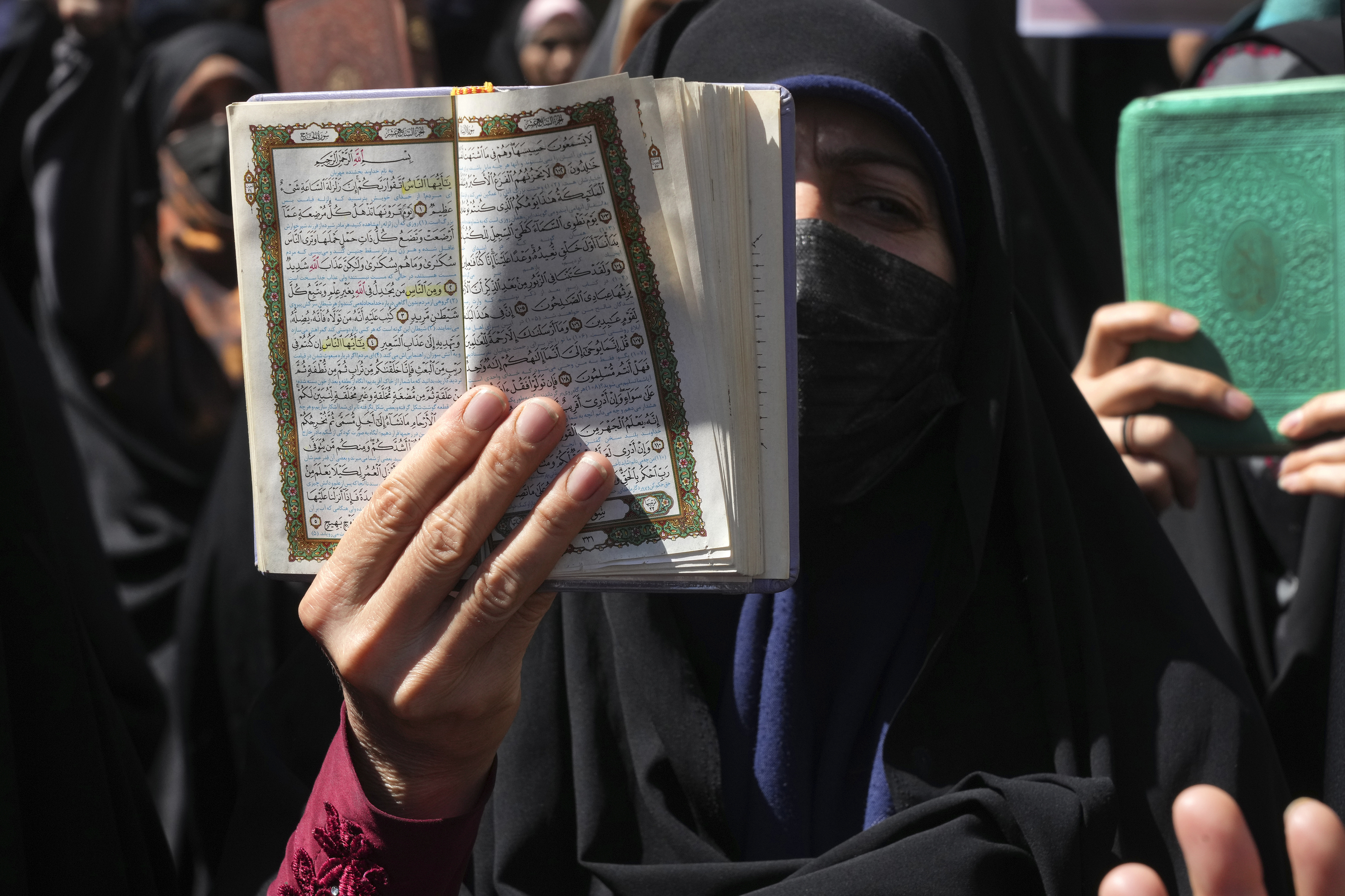Swedish authorities accused Iran on Tuesday of being behind thousands of text messages that were sent to people in the Scandinavian country calling for revenge over the burnings of Quran, Islam's holy book in 2023.
Officials in Stockholm claimed that Iran's paramilitary Revolutionary Guard carried out "a data breach" and managed to send "some 15,000 text messages in Swedish" over the string of public burnings of the Quran.
Senior prosecutor Mats Ljungqvist said that a preliminary investigation, carried out by Sweden's SAPO domestic security agency, showed that "it was the Iranian state via the Iranian Islamic Revolutionary Guard Corps, IRGC, that carried out a data breach at a Swedish company that runs a major SMS service."
The Swedish company was not named. There was no immediate comment from Iranian authorities on the accusations from Sweden.
In August 2023, Swedish media reported that a large number of people in Sweden had received text messages in Swedish calling for revenge against people who were burning the Quran, Ljungqvist said, adding that the sender of the messages was "a group calling itself the Anzu team."
Swedish broadcaster SVT published a photo of a text message, saying that "those who desecrated the Quran must have their work covered in ashes" and calling Swedes "demons."
The protests were held under the freedom of speech act, which is protected under the Swedish constitution. The rallies were approved by police.
However, the incidents left Sweden torn between its commitment to free speech and its respect for religious minorities.
In a separate statement, SAPO's operational manager Fredrik Hallström said the text messages ' intent was to also "paint the image of Sweden as an Islamophobic country and create division in society."
He accused "foreign powers" of seeking to "exploit vulnerabilities" and said they were "now acting more and more aggressively, and this is a development that is likely to escalate." He did not name any specific country.
Meanwhile, Sweden' justice minister, Gunnar Strömmer, told Swedish news agency TT "that a state actor, in this case Iran, according to (SAPO's) assessment is behind an action that aims to destabilize Sweden or increase polarization in our country is of course very serious."
There is no law in Sweden specifically prohibiting the burning or desecration of the Quran or other religious texts. Like many Western countries, Sweden doesn't have any blasphemy laws.
"Since the actors are acting for a foreign power, in this case Iran, we make the assessment that the conditions for prosecution abroad or extradition to Sweden are lacking for the persons suspected of being behind the breach, "Ljungqvist said.
Ljungqvist who is with the Sweden's top prosecution authority said although the preliminary investigation has been closed, it "does not mean that the suspected hackers have been completely written off" and that the probe could be reopened.
Sweden's domestic security agency in May accused Iran of using established criminal networks in Sweden as a proxy to target Israeli or Jewish interests in the Scandinavian country.
